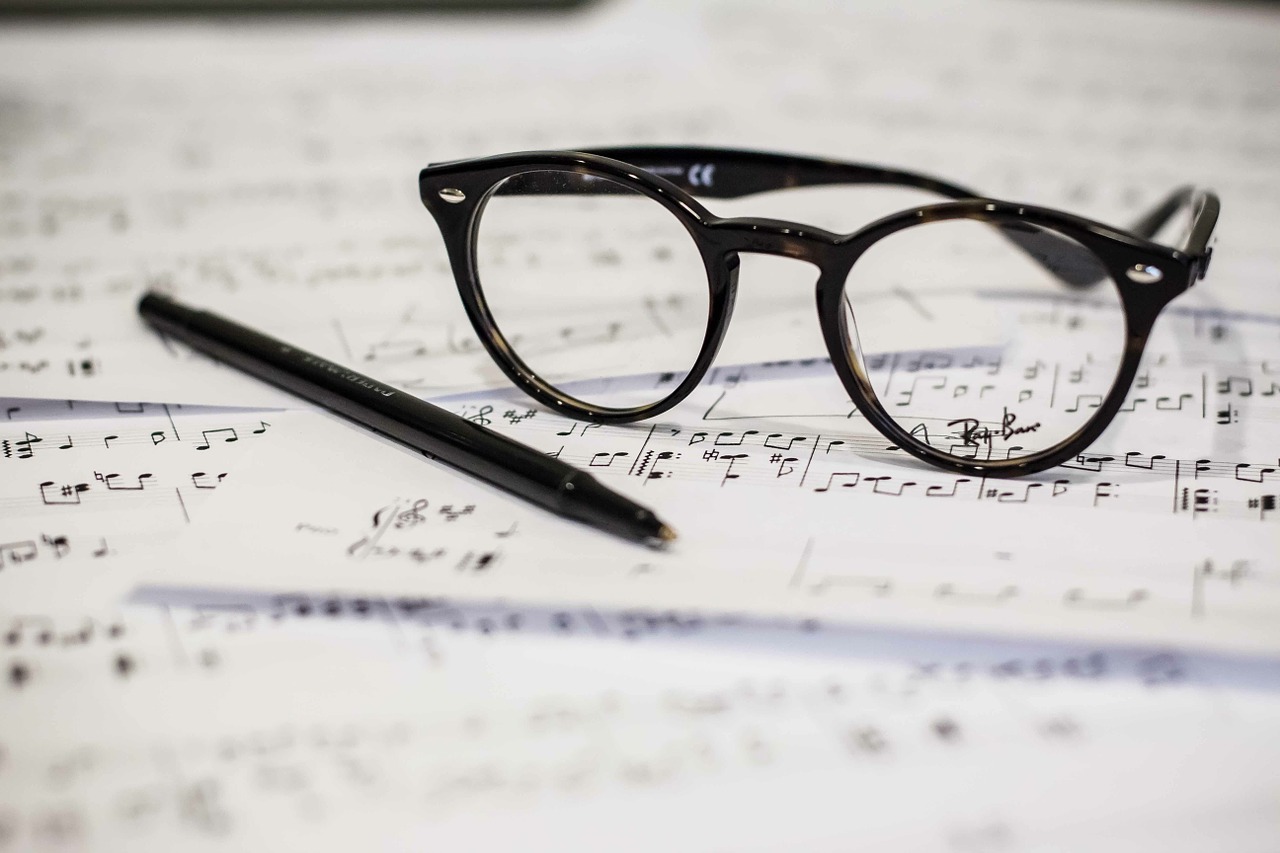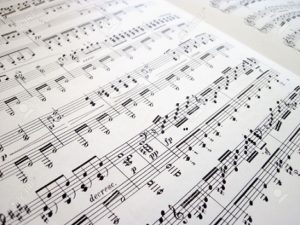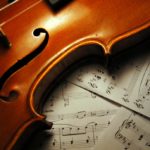
If you’re starting to pick up a musical instrument, you may have been advised to learn music theory, the study of the grammar of music. Music theory examines the elements that construct a piece of music, including notation, key signatures, time signatures, and chord progressions. Many teachers will insist that music theory is a fundamental tenet of a balanced music education and may even include theory as part of their lessons. On the other hand, some believe that learning music theory does not make one a better player and hence find it unnecessary. In this article, we share the importance of music theory so you can assess if music theory is necessary for your music education.
Myth: Music Theory is Harmful to Creativity
Detractors of music theory often assert that learning music theory is not only a superfluous pursuit, but also is detrimental to one’s playing and composition. Supposedly, music theory induces musicians to follow arbitrary rules, curtailing the creative expression of music, which should be an art form that is free spirited and unrestrained in possibilities.
This view is only valid insofar that the musician strictly adheres to the conventions espoused by music theory. Otherwise, it’s a pretty damning assumption that all musicians with extensive music theory knowledge are mindless robots programmed to follow a specified logic in their music.
In fact, all of us can discern when and when not to follow rules. Sometimes, it comes so naturally that we don’t even recognize it. For example, with our knowledge of the grammar rules of the English language, we might be able to write and speak in the Queen’s English. Yet, we don’t always follow these rules as we know that there are contexts in which they are less relevant. Unsurprisingly, we break these rules daily by using slang and other non-standard forms of English when texting or hanging out with friends.
On the other hand, if we have no knowledge the “rules” of music theory, we won’t recognize when a piece breaks the rules or know when it’s appropriate to abide by these rules. As composer David von Kampen suggests in his music theory related article “Why Teach Part-Writing,” breaking rules is meaningless if you don’t even know the rules in the first place. We may unceremoniously dismiss a Bach Fugue as boringly mechanical as it offends our modern pop sensibilities, without recognising its mathematical genius and how Bach attempts to push the boundaries of music despite the limitations of the instruments of his time.
Learners of music theory will know when the rules of music theory are most applicable. Music theory won’t hurt us at all!
Okay so learning music theory doesn’t hurt me, but does it help me?
Yes, it does! Learning music theory comes with several benefits. We discuss the significance of these benefits in this section.
Master pieces faster
Knowing music theory helps us hasten the learning process. A clear understanding of how the piece is constructed helps us learn faster, much like how knowing a street map enables us to drive more efficiently. We will be able to find large scale repetitions and formal landmarks that help us get familiar with the piece. This makes the piece easier to memorize as well. For instance, sonatas may be massively long, but their first movements usually observe the thematic and harmonic structure of Sonata Form. Understanding Sonata Form could save you a lot of time from deciphering how the composition is constructed. You’ll be especially alert to its themes, the repetitions of these themes, and their variations. You’ll also easily notice the standard structure of the sonata’s first movement: exposition, development, and recapitulation. The recapitulation in most sonatas will essentially repeat their expositions, with minor variations. This reduces the amount of new material within the sonata by about a third while speeding up the learning process by that much.
Up your sight-reading game
With music theory knowledge, we can understand common chord progressions and the structure of pieces, which then help predict what the next few measures might sound like. Furthermore, developing a good grasp on intervals will aid in recognizing them on sight. With this, we can sight read faster as we can identify contours and larger patterns in the notes, instead of reading each note one by one.
Enjoy music even more
Understanding music theory will enable us to better appreciate music. Greater familiarity with the features of a composition comes together with a greater capacity for expression when we play and lends to a stronger relatability to the pieces we play. We will be able to spot unusual features in a piece that violate the “rules” learned, and then appreciate that the composer has done something special. This can manifest in irregular contrasts in phrasing, dynamics, meter, or articulation. For example, the second movement of Tchaikovsky’s Symphony No. 6 is a waltz written in 5/4 time, instead of the usual 3/4. Even though Tchaikovsky disrupts the smoothness and balance of the waltz (it has even been described as limping), the dance arguably proceeds on elegantly, and perhaps with even more character.
Even when we aren’t playing, a deeper appreciation of the music we listen to will, at the very least, bring about greater joy.
Improvise like a pro
With knowledge of tonal syntax from our music theory studies, we gain the ability to predict logical chord progressions, which allows us to improvise music that sounds authentic, logical, and cohesive. This helps us find our way out of performing “emergencies,” such as when the players have gotten off track from one another, without the audience noticing anything amiss. This is especially essential for jazz performers, who need to put in extra effort to understand jazz chords, so that they can make funky sounds that are atypical of other genres.
What if I’m a guitarist/drummer/singer-songwriter? Do I really need to learn how Bach constructed his music for the harpsichord?
While you could be an outstanding musician without learning about the technicalities of Baroque music, music theory still offers a good deal of relevant information.
Admittedly, a lot of material about music theory is written with classical contexts in mind. While this may seem far removed from popular music today, the music from the 18th and 19th centuries often serves as the foundation of music across all genres. Even if the instruments are different, the notation, concepts of rhythm and time, as well as chord progressions are applicable to modern music. Some artists have even cleverly incorporated classical pieces into their songwriting. For instance, Galneryus’ “Angel of Salvation” is pays homage to Tchaikovsky’s “Violin Concerto in D, Opus 35” while Procol Harum’s “A Whiter Shade of Pale” borrows Bach’s “Air on a G String.”
Learning music theory grants specific advantages to different musicians. In the following section, we examine the benefits guitarists, drummers, and songwriters accrue, with the expertise of our teachers Ze, Brendan Bache, and Nicole DiPaolo respectively.
Benefits of learning music theory for guitarists
- Learning how to read sheet music familiarizes guitarists with the foundations of chords and how tablature looks on a score, which aids learning.
- With the knowledge of the individual notes that each string can play, guitarists have an easier time playing riffs and in different tunings.
- The ability to read sheet music is crucial for gigging guitarists to play in a group.
- With an understanding of chord progressions, guitarists find it simpler to reharmonize simple pop songs to sound jazzier.
- Guitarists will improvise better as they will know the scales that can be played over every chord.
Benefits of learning music theory for drummers
- Drummers rarely play in isolation; they often complement the melody and harmony. They play important roles in outlining different sections of songs. Hence, knowledge of song form or structure is as important as a solid knowledge of rhythm. To follow a song form, drummers need to be able to follow chords, key changes, and melodies in the other parts of the piece.
- Understanding time signatures and chord structures give drummers a better a sense of rhythm and how to complement the rest of the piece.
- Music theory knowledge enables drummers to communicate with other musicians and express themselves about the direction of the music in a language that every musician should understand. If a musical director says that the next piece is in 7/4, and you haven't studied music theory, you'll have no idea what he’s talking about.
Benefits of learning music theory for songwriters
- Knowing voice leading and construction rules helps songwriters arrange simpler versions of pieces. As long as the voice-leading is kept intact, the piece will still sound rich and full even if the accompaniment is simplified.
- Theory knowledge, coupled with strong aural skills, allow songwriters to transcribe by ear any pieces they like that aren’t available in sheet music or for their instruments. With these aural skills, songwriters can identify the chords involved, the key changes, etc.
- Knowledge of forms and chord progressions will help songwriters write music that sounds complete and melodious to our ears.
So, should I learn music theory?
If you’ve read this far, it’s very telling that we strongly encourage all learners of music to study music theory. We believe that learning music theory is akin to understanding the rules that govern the language of music. With an understanding of these rules, musicians will be able to learn, perform, compose, and enjoy music better.
The more pertinent question is how much music theory one should learn. At Liberty Park Music, we recommend a firm foundation in the basic elements of music, including time signatures, music terms, notation, key signatures, rhythm and melody writing, clefs, intervals, and chords. Knowledge of these elements will enable you to read most forms of sheet music. Our Music Theory 1 and Music Theory 2 courses, designed to develop music literacy, will cover most of the above.
Most learners who are interested in pursuing Grades 6-8 ABRSM examinations will need to obtain Grade 5 certification in Music Theory or Practical Musicianship (which also requires a good deal of music theory knowledge). For these learners, we have an ABRSM Music Theory course that focuses on answering the questions in the theory examinations.
Excited and raring to go but wondering where to start? Why not start with a free trial on Liberty Park Music today?
Ready to learn music theory?
Start learning with our 30-day free trial! Try our music theory courses!
About Liberty Park Music
LPM is an online music school. We teach a variety of instruments and styles, including classical and jazz guitar, piano, drums, and music theory. We offer high-quality music lessons designed by accredited teachers from around the world. Our growing database of over 350 lessons come with many features—self-assessments, live chats, quizzes etc. Learn music with LPM, anytime, anywhere!











Thanks for the interesting read about the importance of music theory. To be honest, I wasn’t aware that having this knowledge is a good way to create melodies that sound complete to the ear. I wonder if it could also be beneficial when it comes to analyzing different pieces of music. It seems like a good way to understand more about how they were designed.